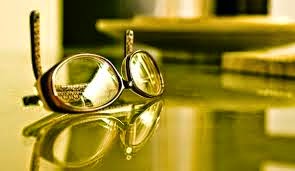 By Beth W. Orenstein
By Beth W. Orenstein
10 Tips for Preserving Eye Health
The following tips can help you take care of your eyes and preserve clear vision:
1. Get regular eye exams. Starting at age 40, get annual eye exams and have your eye doctor look for signs of glaucoma and retinal damage, even if you're a healthy adult with no vision problems. People who have certain medical conditions that increase the risk of eye disorders, such as diabetes, or those who have vision problems should see an eye care professional earlier than 40. Depending on your risk factors and the initial findings of your exam, ask your eye doctor to recommend the appropriate screening intervals that will help maintain clear vision.
2. Wear shades. The sun’s ultraviolet (UV) rays can damage aging eyes just as they can damage skin, says Richard G. Shugarman, MD, an ophthalmologist in private practice in West Palm Beach, Fla., and a volunteer professor of ophthalmology at Bascom Palmer Eye Institute at the University of Miami’s Miller School of Medicine. UV rays can cause cataracts and possibly accelerate macular degeneration. The best way to protect eyes from the sun is with sunglasses that have UV filters. “Sunglasses should be large and wrap around a little, although if you need a prescription you can’t have too much wraparound without distorting the images,” says Dr. Shugarman. Lenses of any color will do as long as they have UV filters.
3. Don a hat. Wear a wide-brimmed hat when you're outdoors for any length of time. Sunglasses help, but a hat will give you extra protection. “If you’re gardening or playing golf or a round of tennis, you want to keep the sunlight off your face and eyes, and protect your skin from melanomas,” says Shugarman. The eyelid is a common spot for a melanoma to develop.
4. Enjoy the fruits of the garden. Choose a diet rich in fruits and vegetables. While definitive evidence is lacking, some studies suggest that sufficient intake of the antioxidants lutein and zeaxanthin may help lower the risk of eye conditions that can accompany aging, such as cataracts and macular degeneration, Shugarman says. Lutein and zeaxanthin are found in fruits and vegetables with yellow and orange pigments, such as corn, squash, carrots, and citrus fruits. They are also found in dark green leafy vegetables, like kale and spinach.
5. Take a multivitamin. Vitamins A (beta-carotene), C, and E and the mineral zinc have been shown to promote eye health. “Fifty years ago, doctors were convinced that if people ate a normal, balanced diet, they didn’t need supplements,” Shugarman says. “But today’s soil is not as rich in nutrients as it used to be, and some of it is over-farmed. We’re getting shortchanged even when we try to eat properly.” When choosing a multivitamin, be sure to get one that meets all the requirements for your age and stage of life.
6. Stop smoking. Smoking can promote eye diseases because it reduces blood flow to the eyes and can increase the amount of toxic substances (like tar and nicotine) your eyes absorb. If you’re at risk for diabetic retinopathy or macular degeneration, exposure to toxic substances in cigarettes can elevate that risk.
7. Shed some light. While you won’t permanently hurt your eyes by reading or working in a dimly lit area, you can cause temporary eyestrain, which can lead to headaches and fatigue. Protect your eyes by making sure your workspace is brightly lit.
8. Take a break. Another way to prevent eyestrain is to take frequent breaks from the computer screen or reading materials. About every 10 minutes, look up or awa
y for 10 seconds, so your eyes get a rest. If you’re watching television, give your eyes a break and look away every half hour or so.
9. Get sufficient sleep. Being overtired can increase eyestrain. If you get enough sleep, your eyes will be refreshed along with the rest of your body.
10. Don’t ignore warning signs. Eye doctors can treat many potentially serious vision problems if they are caught early enough. See your doctor if you experience blurred or double vision, if your vision appears cloudy, or if you have eye pain or are bothered by the glare of lights. All are signs that you could be developing vision problems that can be treated by your eye doctor.
You can’t stop time, but you can take care of your eyes so that they remain healthy as you age. Having clear vision is possible at any age.
Source: http://www.everydayhealth.com/


